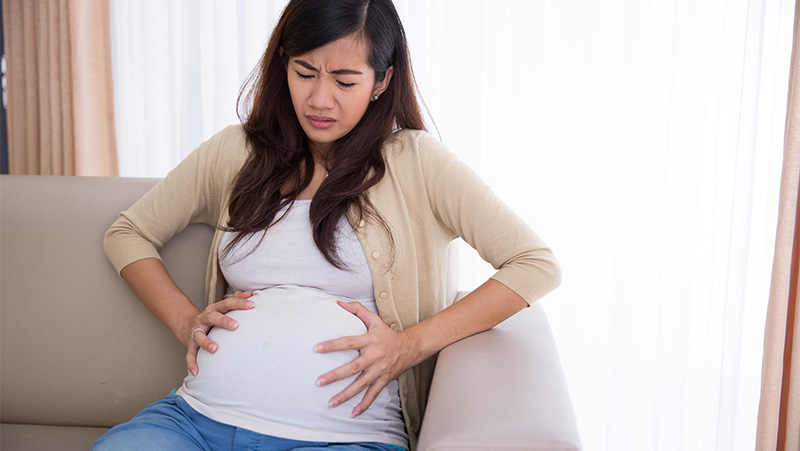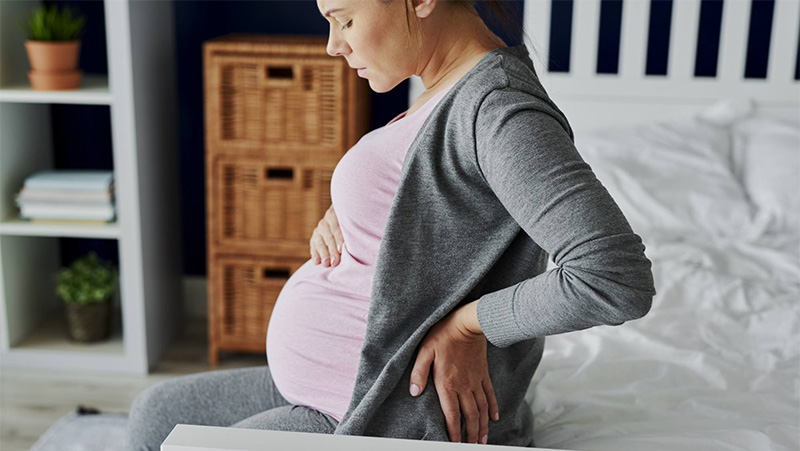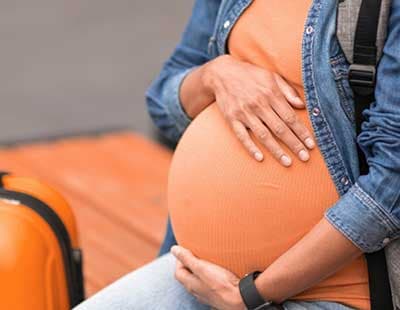Every pregnancy journey is beautiful with its own ups and downs. However, as expectant parents, we know how eagerly you wait for the day when you can hold your little one in your arms. Apart from these wonderful experiences of a pregnancy journey, there is a small thing that might need your attention— preterm or premature labor. It is nothing but the early delivery of your baby, but is it risky? Let’s find out.
What is Preterm or Premature Labor?
Natural labor is when your body gets ready for childbirth, and signs of it include contractions (tightening of your uterus muscles) and your water breaking. However, preterm or premature labor refers to the process of giving birth too early almost before completing 37 weeks of pregnancy. Normally, a pregnancy lasts for about 40 weeks. If a baby is born before 37 weeks, it's called preterm.
During preterm or premature labor, the uterus (cervix) may start to open earlier than it should. This early labor might lead to the born of a premature baby, i.e., when the baby is not fully developed.
Sometimes, medical professionals can help stop this early labor and give your baby the time to grow inside your womb. These treatments may include bed rest, medicines to calm your uterus, and fluids through a vein.
In certain cases, the medical team of experts may need to start labor before the baby even reaches its full growth. This usually happens when there are problems with the placenta (placental abruption), high blood pressure during pregnancy (preeclampsia), or if the baby isn't growing as expected (fetal growth restriction).
So, Are Premature Birth and Preterm/Premature Labor the Same?
Preterm labor normally leads to the premature birth of a child. However, different factors can contribute to this phenomenon. Some of these factors include—
- Your health history,
- Past pregnancies with premature labor, and
- Your lifestyle.
Surprisingly, even if you don't seem to have any of the above reasons for it, preterm or premature labor can still occur.
Preterm Labor Signs and Symptoms
- Getting contractions every 10 minutes or more. It gradually increases and gets stronger with time.
- Backache that doesn’t leave even after changing sleep positions. This pain especially occurs in your lower back.
- Cramps in your lower abdomen.
- Flu-like symptoms such as vomiting, nausea, or diarrhea. Do consult your doctor If you haven't consumed any fluid for more than 8 hours.
- Severe vaginal leakage, discharge, and bleeding.
- Pressure in your pelvis or vagina.
How Can I Check Contraction?
Checking for contractions is an important way to know if you're going through an early labor. Here are the steps for you to follow when suspecting a contraction—
- Put your fingertips on your belly.
- If your belly feels tight and softens, that's a contraction.
- Keep track of your contractions. Remember to note the time when one starts and when the next one begins.
- Try to make the contractions stop. To do so, sit down or change your position, try to relax, and have a few glasses of water.
Call your medical professional, if—
- Contractions continue to happen for every 10 minutes or more.
- Your symptoms seem to get worse.
- You have severe and unbearable pain.
However, sometimes pregnant women experience harmless contractions called Braxton Hicks. These contractions usually stop when you move or rest for a while. The major difference between this real and false labor pain is— Braxton Hicks contraction is not consistent. Therefore, they are not a sign of early labor.
But if you are not sure about the contractions you're feeling, it's always better to check with your doctor.
Early Labor Causes

- Being very overweight or underweight before you get pregnant
- Teen pregnancy or being 40 years old or older
- Smoking, consuming alcohol, or illegal drugs while pregnant
- Not getting proper care during pregnancy
- Having health issues like preeclampsia, high blood pressure, blood clotting problems, diabetes, or infections
- Getting pregnant through in vitro fertilization (IVF)
- Having a family history of early labor
- Carrying twins or more babies
- Getting pregnant soon again after having a baby
Premature Labor: Diagnosis and Tests
If your medical team of experts diagnoses that your baby might need to be delivered early, they will immediately ask you to get admitted. Once you get there, your doctor or nurse will—
- Check your pulse, temperature, and blood pressure.
- Conduct an ultrasound to track your baby’s heart rate.
- Take a look at your medical history along with any over-the-counter drugs that you might have taken during pregnancy.
- Conduct a fetal fibronectin test that predicts the growth of your baby and the risk of early delivery if any.
- Examine your urine or cervix for any signs of infection and see if it's already opening for delivery.
If you are having an early delivery, you might require certain medications and treatments, such as—
- Antibiotics.
- Medicine to help develop your baby’s lungs faster.
- Provide medication to calm your uterus and stop labor.
- Passing of fluids through a tube in your vein (IV fluids).
Remember, you might have to stay in the hospital if in case your labor pain doesn’t stop, or if you are detected with an infection in your uterus, or high blood pressure during pregnancy.
However, if all the reports are good, you can go home and take some rest. Do not forget to lie on your side with some extra pillows to get rid of any back pain or discomfort. You can always go for good-quality pregnancy body pillows by Eli & Elm to help you sleep better during those restless nights.
ELI&ELM SPECIAL OFFER!
How to Prevent Premature Labor
Completely stopping early labor is difficult, but there are things you can do to lower the chances of it happening. Here are some tips for you to follow—
- Avoid consuming alcohol, using drugs, smoking, or even taking prescribed medicines improperly.
- Treat or manage if you have any medical conditions, such as gestational diabetes, hypertension, vaginal infections, or depression.
- Try to reach a healthy weight before getting pregnant.
- Attend all your routine checkups.
- Eat nutritious foods and take prescribed prenatal vitamins.
- Try to manage stress by going on a walk or maybe reading.
- Even after getting pregnant try to follow a healthy diet and engage yourself in workouts.
- Wait at least 12 to 18 months between pregnancies.
The Bottom Line

Around 1 in every 10 American pregnant women deal with preterm labor. Symptoms like severe contractions, vaginal discharge, bleeding, or pelvic pain, can result in delivering a premature baby. Especially when you are expecting twins or experienced preterm labor before, the risk might be even higher for you.
Your medical team of professionals is the only one who can help you control your labor pain and prevent early delivery. Remember as long as your baby stays inside your womb the more healthy it becomes until the due date. Therefore, taking care of your health problems to maintain a healthy pregnancy is extremely crucial to keep your baby away from premature delivery to deliver a healthy child at the right time.





















